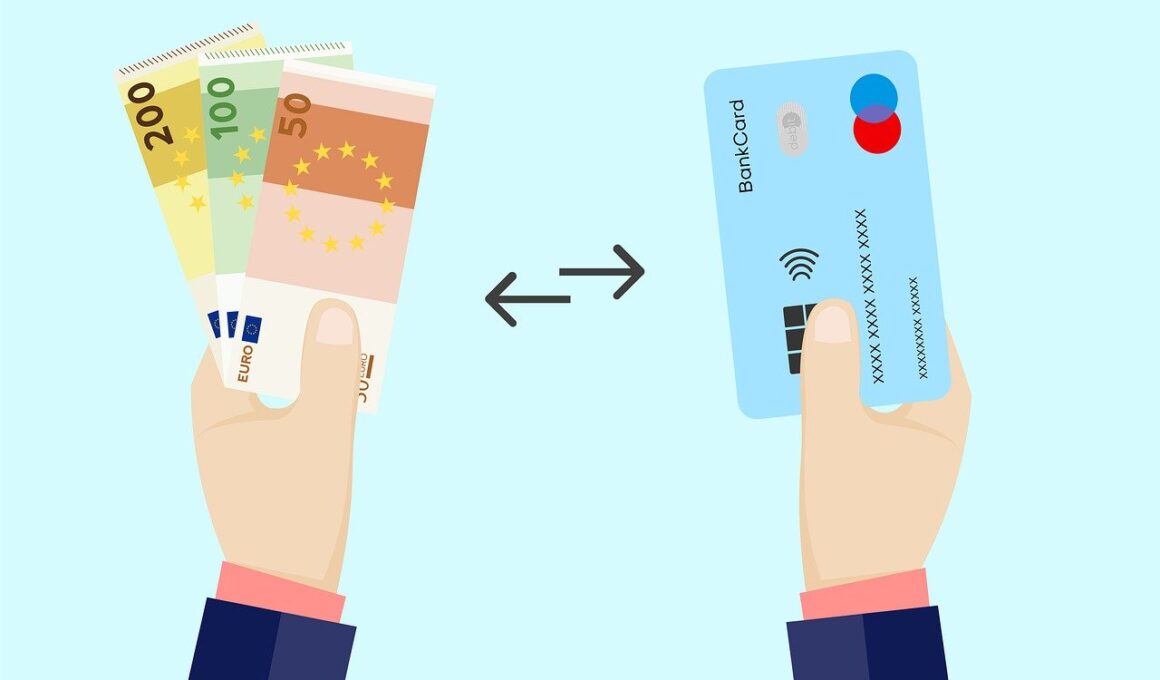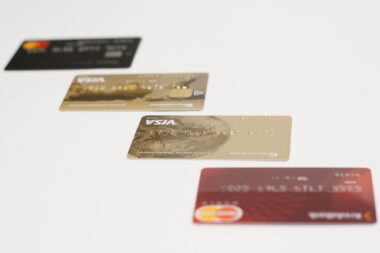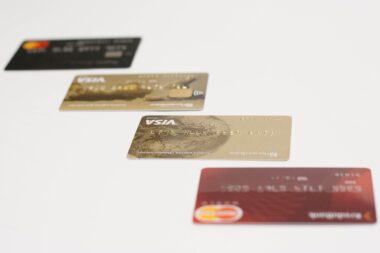How to Avoid Credit Card Debt While Optimizing Benefits
Managing credit cards efficiently is crucial for financial health. High-interest rates on credit cards can lead to overwhelming debt. To avoid falling into this trap, develop a solid understanding of terms and fees associated with your cards. Knowing the ins and outs helps you make informed choices. Create a budget that outlines your expenses and uses cash where possible, limiting card use for emergencies or planned purchases. Set aside funds to pay off balances in full each month, avoiding interest charges. Utilize any rewards systems wisely by leveraging them for necessary purchases, avoiding impulse buys. Regular monitoring of your spending habits can help curb unnecessary expenses and identify areas where you can save. If you feel your utilization is too high, consider requesting an increase in your credit limit. This strategy can lower the utilization ratio without increasing spending, which positively impacts your credit score. Finally, educate yourself on annual fees and potentially switch to cards that offer no fees alongside competitive rewards. These steps not only help avoid debt but also optimize the benefits you receive from your credit cards.
Implementing good credit card practices helps build not only your credit score but also financial well-being. First, always pay on time to avoid late fees. A single missed payment can have long-term impacts on your credit score. Enroll in autopay to help you never miss a payment; just be sure to monitor your account for sufficient funds before payments are processed. Additionally, take advantage of promotional periods such as 0% APR offers. These can give you breathing room for significant purchases without accruing instant interest. Use them responsibly to keep your balances low. When managing multiple cards, keep track of their due dates and payment cycles. Utilizing a digital calendar or finance app can make this process straightforward. Consider using only one primary card for most purchases to simplify management. This strategy can also help maximize rewards on that card, allowing you to benefit fully from its perks. Further, join loyalty programs related to your spending patterns. Frequent shoppers can accumulate points and enjoy cashback through specific offerings, which feed into your overall financial strategy effectively.
Prioritize Your Payments Wisely
It is important to prioritize payment on your high-interest cards first. Begin by identifying which of your credit cards charges the highest interest rate. You want to reduce that debt as quickly as possible, especially if you carry a balance. Consider utilizing the avalanche method: pay the minimum on all cards while putting any extra funds toward the highest rate card. Over time, this method will save you money on interest and help reduce overall debt faster. Conversely, if you have multiple debts weighing you down, consider a balance transfer to a card offering a lower interest rate, especially if it comes with an introductory 0% APR. While this may temporarily improve your situation, ensure you read the terms clearly, as there may be fees involved. Another strategy involves negotiating better terms on existing cards by contacting providers directly, especially if you have a good payment history. Providers may lower your rates or eliminate annual fees when you express intent to switch to another card. Therefore, effective communication is key in managing credit card accounts sustainably.
Staying educated on the impact of credit utilization is vital. Credit utilization refers to the percentage of your total credit limit that you’re currently using. Keeping your utilization below 30% is generally recommended; however, lower is better for preserving your credit score. For instance, if you have a total limit of $10,000, ensure your total balance doesn’t exceed $3,000. To achieve this, refrain from maxing out your cards during swathes of time. Larger purchases should be carefully considered or made during phases of planned repayment. Additionally, try to limit new hard inquiries, which occur when applying for new credit. These inquiries can affect your credit score negatively if frequent. Check your credit report periodically to ensure its accuracy works in your favor. Report any discrepancies promptly to rectify any issues. Companies like Credit Karma provide free credit report checks to monitor your account status. It is imperative to understand how your credit behavior impacts your overall financial journey. Consistently managing these aspects empowers you not just to optimize card benefits but also to maintain a solid financial reputation.
Leverage Credit Card Rewards Smartly
Credit card rewards programs can greatly enhance your financial strategy. However, to fully benefit from them, it’s essential to align your spending habits with card offerings. Invest time in identifying which cards match your regular purchases best. Many cards offer unique perks, such as cashback, travel points, or bonus rewards for specific categories like groceries and gas. Choosing a card that aligns with your lifestyle ensures you maximize benefits without increasing overall spending. Pay attention to sign-up bonuses; these can significantly boost your rewards within the first few months of account opening. But ensure it fits your budget to reap those rewards effectively. In addition, utilize apps or websites that allow you to track rewards and points accumulation easily. Regularly redeem rewards to prevent expiration, especially if applicable. This proactive approach ensures you don’t leave unused benefits behind, effectively augmenting your financial advantage over time. You can also strategize your redemption to cover large expenses, such as vacations or high-ticket items, turning rewards into substantial savings. Ultimately, being informed means maximizing your financial output significantly through effective reward usage.
Monitoring all expenditure helps maintain a healthy financial profile. Regular budget reviews are essential for identifying unnecessary spending patterns. Rethink your shopping habits to determine needs versus wants. Create lists before going shopping to avoid impulsive purchases, which can lead to heavier credit card reliance. Many financial experts advocate for the 50/30/20 rule, allotting percentages of your income towards needs, wants, and savings respectively. This approach creates a clear path for financial stability and prevents overspending on credit. Use budgeting apps or spreadsheets to keep a transparent record of shallots. Automate savings transfers to build an emergency fund; this fund provides a buffer against unexpected expenses, minimizing reliance on credit. If guidance is needed, consult financial planning resources for constructing a budget that fits within your financial goals. Learning to differentiate between necessary purchases and impulsive ones requires discipline but pays off. Over time, make adjustments to your budget as necessary, reflecting changes in income and requirements. Being diligent not only increases your savings but fortifies you against accruing credit card debt in the long term. Thus, maintaining a financial buffer helps avert the pitfalls of credit mismanagement.
Conclusion: Stay Disciplined
Successful management of credit cards requires ongoing discipline and engagement with your financial resources. Commit to staying informed about new offers, which can benefit your standing. Look at your spending holistically; each purchase reflects how you value maintaining debt versus optimizing benefits. Regularly reassess credit card strategies throughout life changes, adjusting to better suit your financial profile. Share knowledge and strategies with friends and family to foster accountable financial management together. This social approach can yield joint savings and reward opportunities. Reflect on the habits leading to unnecessary debt frequently. Mindful spending pays dividends in saving and optimizing benefits connected to credit use. Regularly check your credit report, ensure all transactions are accurate, and contact agencies for necessary corrections. Implementing these strategies creates a financially savvy cycle, making credit cards an aid rather than a hindrance. It transforms potential pitfalls into stepping stones towards financial growth. Ultimately, the goal is management that permits flexibility while controlling debt levels effectively. Optimizing credit card benefits should enhance overall financial well-being and not compromise it, ensuring security in your financial health long into the future.
Taking the time to establish wise credit card practices fosters greater financial security. Begin with setting a clear intent for your credit card usage, making each decision purposeful. Stick to your budget by keeping unnecessary expenses at bay. Leverage tools like monthly spending trackings, so your financial situation remains transparent. Finally, don’t hesitate to reach out for help if you’re struggling with debt. Financial advisors and workshops can provide invaluable insight. Often, learning how to adapt to external factors affecting credit will prepare you for unforeseen challenges ahead. Remember, discipline is where the power of effective credit card management resides.





